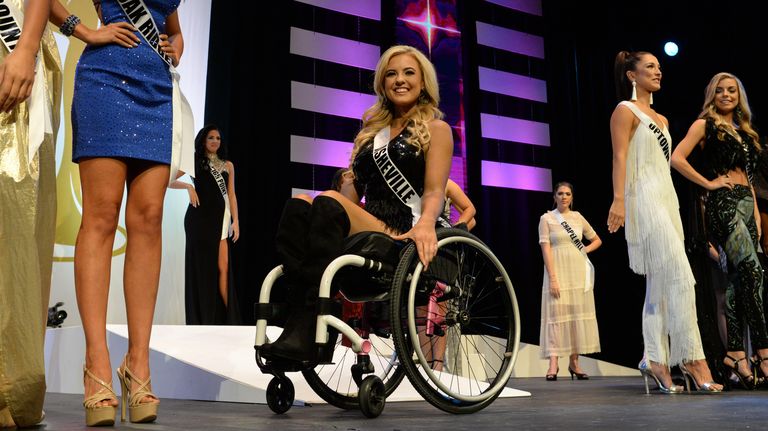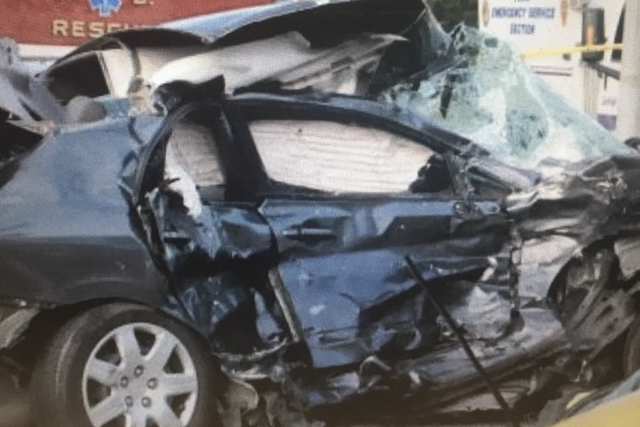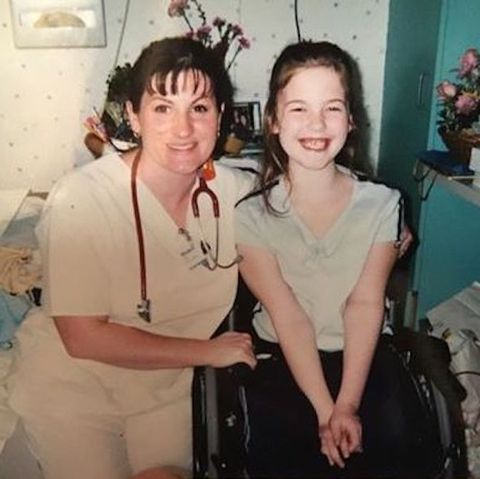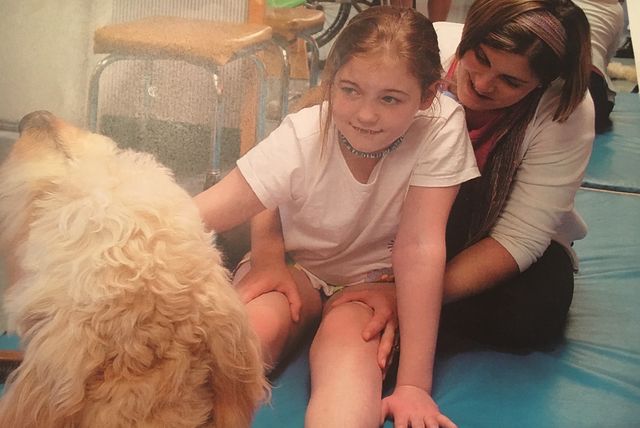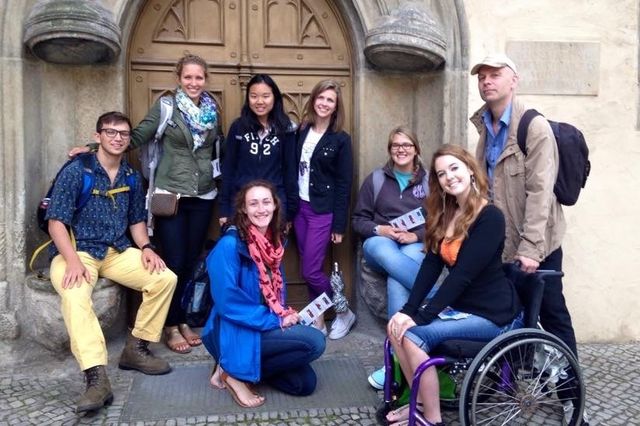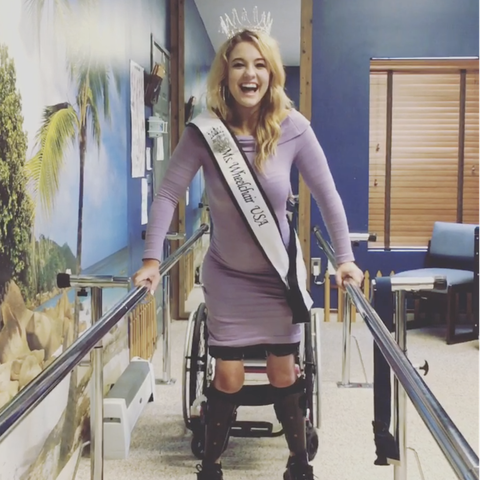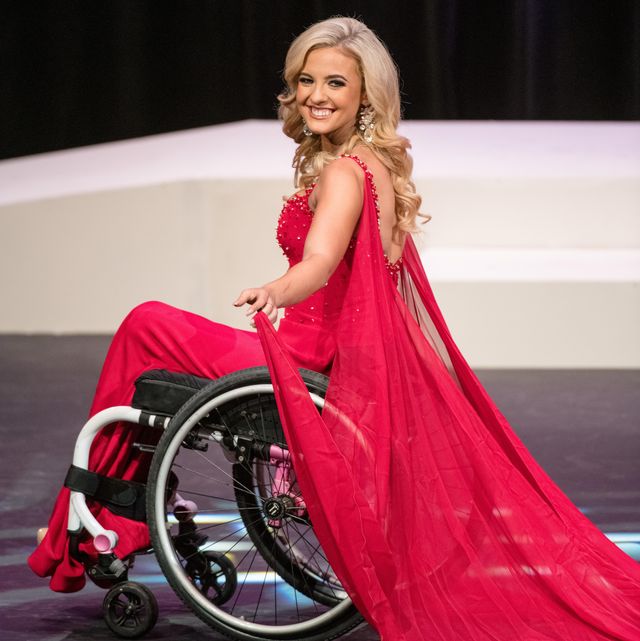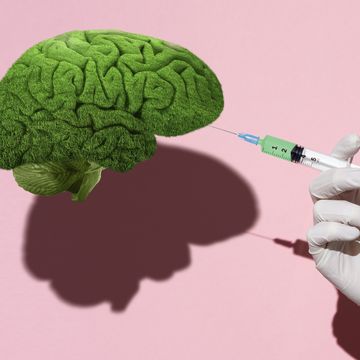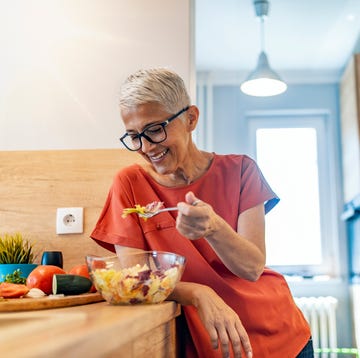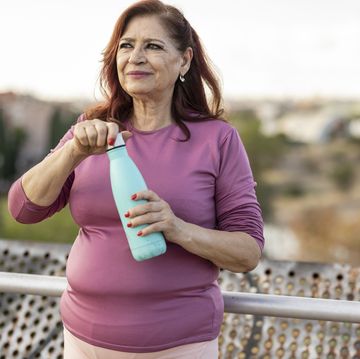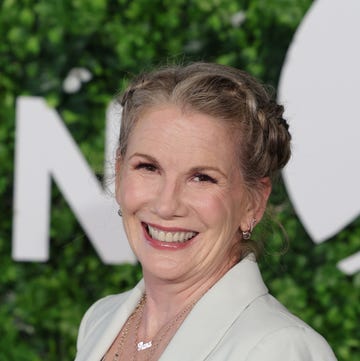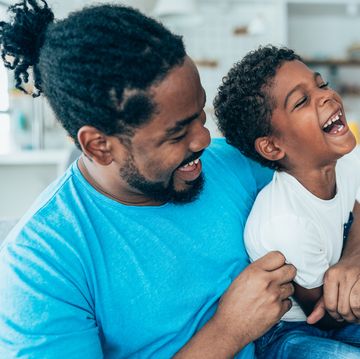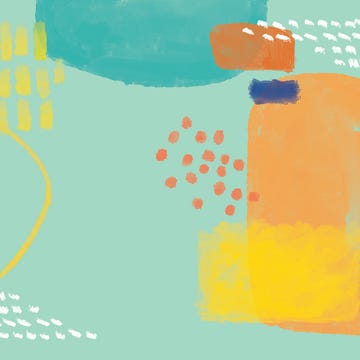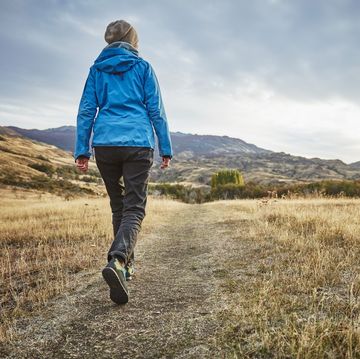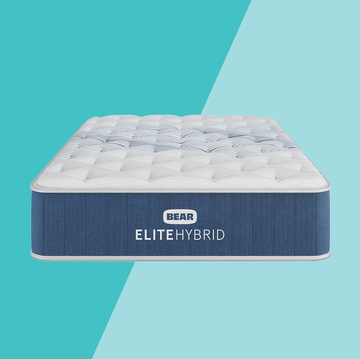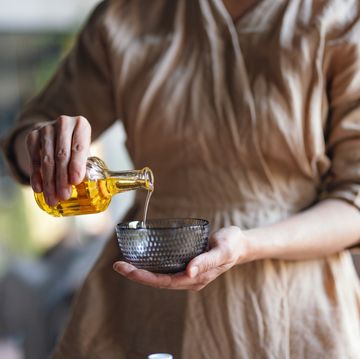Madeline Delp thought if she could just pray hard enough, she could stand up straight. The then 10-year-old was the focus of the day's service at her local church, nestled in the Christian-dominated town of Asheville, NC. Her preacher had taken her to the front of the congregation, announcing: “In the name of God, if you have faith, you’ll be able to stand.”
With one hand on her wheelchair, Delp tried to get her brain to do what it had done automatically just three months ago: signal to her legs to move—to simply hold herself upright. Hundreds of churchgoers shouted what made up a piercing vocal soup, trying to make Delp into an able-bodied girl. But as much as she wanted to stand, Delp couldn’t do it. She sat back in her wheelchair. She ended up feeling like her injury—paralysis from the waist down—was a form of punishment. “I thought I must've done something to bring it on myself,” Delp recalls.
On the day of the accident, February 27, 2004, a storm covered Asheville in a thick blanket of snow. Young Delp started the morning dancing around her room after learning she had the day off from school. "I remember waking up thinking, Wow, I can spend the whole day with mom. It's going to be the best day!" she says.
Their snow day plan was to go to church and sing together. As she and her mom belted "You Raise Me Up" by Josh Groban, Delp broke down in tears. "I felt so moved by the song in a way that I couldn't explain," she says.
Fifteen minutes later, they got into the car to head home. As they were driving, a truck slammed into the left side of the car where Delp was sitting. (For some reason, she’d felt compelled to sit in the middle seat, rather than the left side where she normally rides. It probably saved her life.)
"I was trapped inside," Delp says. She doesn't remember much else. She knows she spoke with the firefighters who rescued her, and that they told her they couldn't get her out of the car. "It was too crushed around me, and they were having to reach in and use something to breathe for me,” she says.
When those first responders finally got her out, she was bleeding so badly that they didn't think that she would make it to the hospital alive. She did, but she stayed in a coma for several weeks.
A new normal
Delp woke up in the emergency room of Mission Hospital, terrified. She recalls wanting to run away, "but I couldn't move, and that was indescribable," she says. Her mom held her hand at her bedside as the doctors came into the room. “They were pretty blunt,” Delp says, “letting me know that I had a paralyzing spinal injury, and that I’d be paralyzed for life.”
She and her mom still had faith that she might be able to walk again. "It was a battle that lasted many years, wondering what was true and what my body was going to be able to do,” Delp says.
She spent months recovering in a rehabilitation hospital in Charlotte, NC, but her mental health suffered. "I was processing whether it was real and always thought I was going to wake up and be able to go back to my old life," she says. "I had a lot of anxiety and panic attacks for the first several months because I didn’t know how to handle it. I was only 10."
Even after accepting that she’d be wheelchair-bound for life, Delp still felt like something foundational had been taken away from her. "I had all of these beliefs about myself and all of the sudden they were gone," she says. "I didn’t feel like the same person.”
Three months of rehab in, Delp and her mom felt it was time to try to go back to school. Unfortunately, the environment was less than welcoming. For starters, most of the building was inaccessible for the physically disabled. Delp also felt like people were afraid of her.
Her school eventually said it “wasn’t a good fit” for Delp, so she enrolled in a homeschooling program. While it gave her more time to adjust to a new normal, "it was almost so private that I became conditioned to think I needed to be separated to succeed in life,” she says.
Getting stronger
When Delp was 14, she and her mom moved to Detroit, MI, where she started going to a nearby rehabilitation center. That’s when she reached a turning point: "Before that point I was depressed, and my whole hope of having a good life was centered around being able to walk again,” she says. “At the rehabilitation center, trainers were feeding positivity into my life and for the first time I was able to focus on me and what I could do, instead of what I couldn’t do."
She also met other peers. "It was the first time I met anyone else in a wheelchair who was going through the same journey,” she says. “I entered a whole new reality and saw myself in a new way."
Delp transitioned from homeschool to a public high school near Asheville, which brought her out of her shell. "I went into theatre, and at about 17 was when I began being the new me," she says. She graduated, received a scholarship to UNC Asheville, and was inspired by a “crazy burst of courage” to apply for a study abroad program in Germany. That was another turning point.
"I had to grow so quickly to be able to do this kind of adventure, and I had to believe in myself in a way I never did before," she says. "We have these negative beliefs about ourselves, and until you force yourself through impossible situations, you take down those negative beliefs brick by brick and reinforce them with a positive perspective."
Giving back
Feeling confident and strong after college, Delp explored the world of pageantry at age 20. She won Ms. Wheelchair NC in 2016 and found that she enjoyed traveling around the country and speaking to groups. "I loved the way I could connect with other people and use something so painful to be a force of good," she says.
More adventures came along with it: rock climbing, cave exploring, and even skydiving all in an effort to encourage others to face their fears. "You can use really awful experiences to work for the greater good," she says. "Even though it’s been a hard journey, I see my injury as a superpower because it put me through the fire and I came out as the woman I wanted to be. I couldn't ask for a greater gift."
While on her Ms. Wheelchair USA tour, Delp was approached by a girl in a wheelchair who asked if "someone that looks like us" would be pretty enough to compete in Miss USA. "I hadn't even thought of that as a possibility, because I had a lot of insecurities about how I look and about how people perceive disabilities," Delp says. But in that moment, she knew she had to do it.
Tomorrow, Delp will become the first wheelchair-bound woman to compete in Miss North Carolina USA. She's a spokesperson and being sponsored by Aeroflow Healthcare. (For $18, you can live stream the pageant, which airs November 8 and 9 at 7:30 p.m. EST.)
"I know I am very different, but I have been preparing to do my best, and I fully believe the judges will accept me the way I am," she says.
No matter how the competition goes, Delp says she feels like she’s already won. She’s used her platform in pageantry to create Live Boundless, an organization that provides wheelchairs and resources to those with disabilities.
"It's something I can work towards for the rest of my life, helping others realize that they don't have to be bound to their circumstances," she says. "I think people assume that people with disabilities can't do as much as they can, but we also have to meet people where they are."
Delp says her goal with Live Boundless is to develop an understanding and inclusive workforce that is able to ask, How can we help you to do this job and provide you with the resources that can supplement the areas where you will not be able to perform?
And for those with differences? "Focus on your ability and what you can do,” she says. Learn to accept fear as a tool, because when you're able to look your fears in the face and do that thing that you're terrified of, you'll become a stronger person.”
Like what you just read? You’ll love our magazine! Go here to subscribe. Don’t miss a thing by downloading Apple News here and following Prevention. Oh, and we’re on Instagram too.

Currently an assistant editor at Prevention.com, Nicol is a Manhattan-based journalist who specializes in health, wellness, beauty, fashion, business, and lifestyle. Her work has appeared in Women’s Health, Good Housekeeping, Woman’s Day, Houston Chronicle, Business Insider, INSIDER, Everyday Health, and more. When Nicol isn't writing, she loves trying new workout classes, testing out the latest face mask, and traveling. Follow her on Instagram for the latest on health, wellness, and lifestyle.
